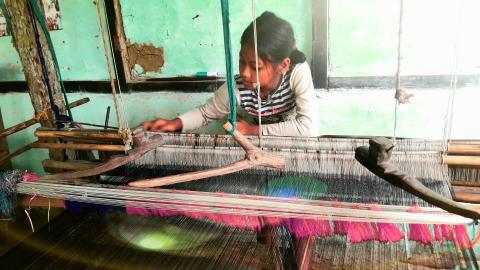European Economic
and Social Committee
Decent work: Business should never be done at the expense of people's dignity and freedom
A steep rise in child and forced labour as well as continued exploitation of workers across the globe make EU action on decent work increasingly more urgent.
The hearing on "Decent work worldwide", which took place on 4 May, brought together EESC members, representatives from the European institutions and the International Labour Organisation (ILO), as well as academics and civil society organisations.
The hearing was held to gather input for the EESC's forthcoming opinion on the topic, focusing on the Commission's Communication on Decent Work Worldwide, adopted in February, and its proposal for a Directive on Corporate Sustainability Due Diligence.
With these initiatives, the Commission is striving to position the EU as a champion of decent work, both at home and worldwide, and to enable millions of people to work and live in dignity.
"We have a dream of a future where work is decent. But decent work is not yet a reality for hundreds of millions of people around the world, which makes achieving the Sustainable Development Goals a difficult task", said the rapporteur of the EESC opinion, María del Carmen Barrera Chamorro.
The COVID-19 pandemic has further aggravated the situation in the world of work, with lots of countries reporting a spike in precarious working conditions. It has disproportionately affected women as well as vulnerable groups such as children and workers in the informal economy. The number of children engaged in labour had started to climb even before the pandemic, having increased by more than 8 million in the period between 2016 and 2020, after it had previously fallen.
It now stands at 160 million child workers, or one in ten children worldwide. There are 25 million people in a situation of forced labour. In the absence of sufficient social protection coverage, an additional 46 million children may fall victim to child labour in the near future.
The aim of the EU's endeavour is to encourage sustainable and responsible corporate behaviour in domestic markets, in non-EU countries and throughout global value chains. The key tools will be EU policies for corporate responsibility and transparency. A legal instrument to ban products made by forced labour is also planned. All policies will promote gender equality and non-discrimination.
"We welcome the Commission's initiative, but we need to have a more ambitious agenda and an integrated policy based on universal human rights. Decent work is in the interest of people, but also of companies, consumers and the planet", Ms Barrera Chamorro concluded. (ll)
